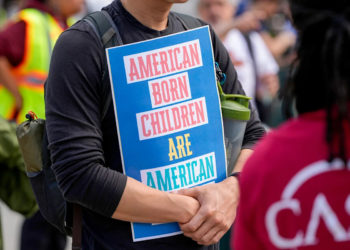10 things we need to understand to better cope with anxiety
Anxiety is one of the most common mental health concerns in the world. According to the National Institute of Mental...
xAI apologized for Grok’s ‘horrific’ rant, and blamed the chatbot’s new instructions and ‘extremist’ X user posts
xAI apologized for Grok's inflammatory posts and said it was caused by new instructions for the chatbot.The update made Grok...
FEMA removed dozens of Camp Mystic buildings from 100-year flood map before expansion, records show
Federal regulators repeatedly granted appeals to remove Camp Mystic's buildings from their 100-year flood map, loosening oversight as the camp...
Couple’s message in a bottle found 13 years later 2,000 miles away
A message in a bottle thrown into the Atlantic Ocean by a Canadian couple in Newfoundland 13 years ago recently...
What’s at the center of a black hole? Scientists have a sobering answer.
They’re the boogeymen of science fiction, a paradox of science and quite possibly a key to understanding the universe.Scientists have...
Turkish president hails the start of disarmament by militant Kurdish separatists
ISTANBUL (AP) — Turkish President Recep Tayyip Erdogan on Saturday hailed start of a disarmament process by militant Kurdish separatists...
Chevron says offshore well start-up caused Mars crude quality issues
By Arathy Somasekhar HOUSTON (Reuters) -The start-up of an offshore well caused zinc contamination in Mars crude, Chevron said on...
Facing charges, scared detainees choose fast-track deportation
TALLAHASSEE, Florida ‒ In a cold courtroom in downtown, Isabela Hurtado sat in a wooden pew. It had been over...
Russia warns US, South Korea and Japan against forming security alliance targeting North Korea
SEOUL, South Korea (AP) — Russia’s foreign minister on Saturday warned the U.S., South Korea and Japan against forming a...
How latest block of Trump’s birthright citizenship order tests legal landscape after Supreme Court ruling
A federal judge’s decision to temporarily prevent the Trump administration from stripping birthright citizenship for some babies born in the...















